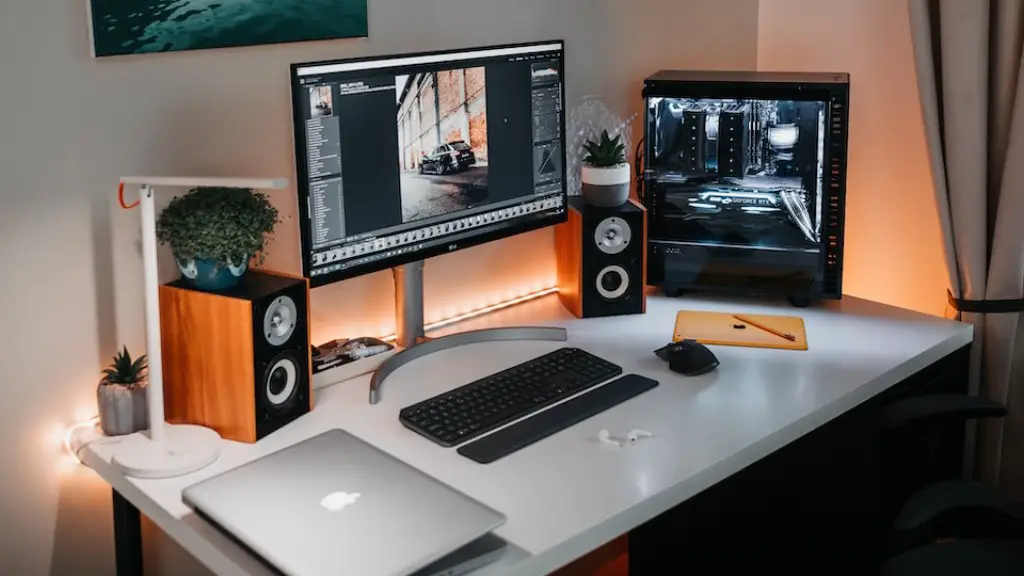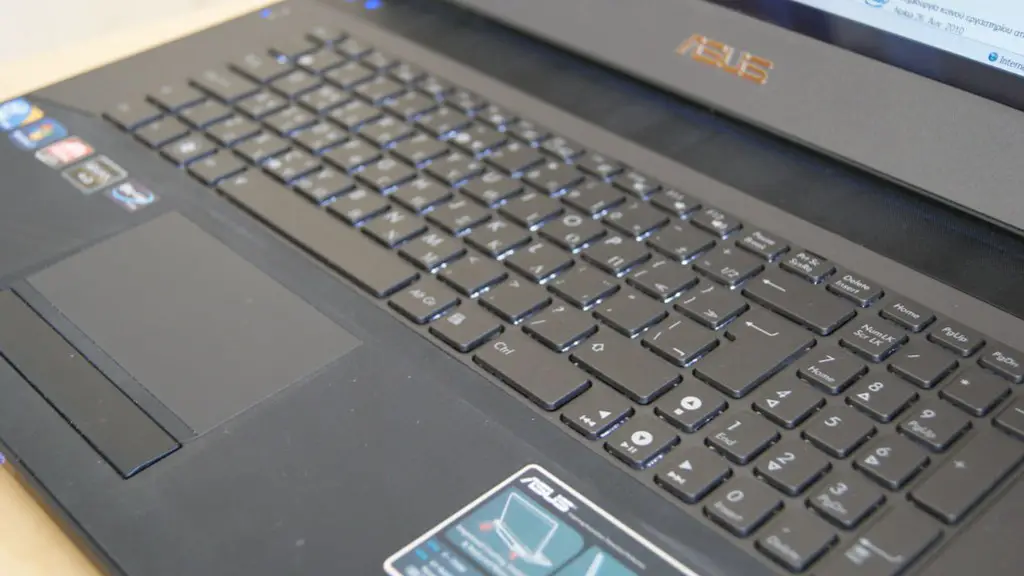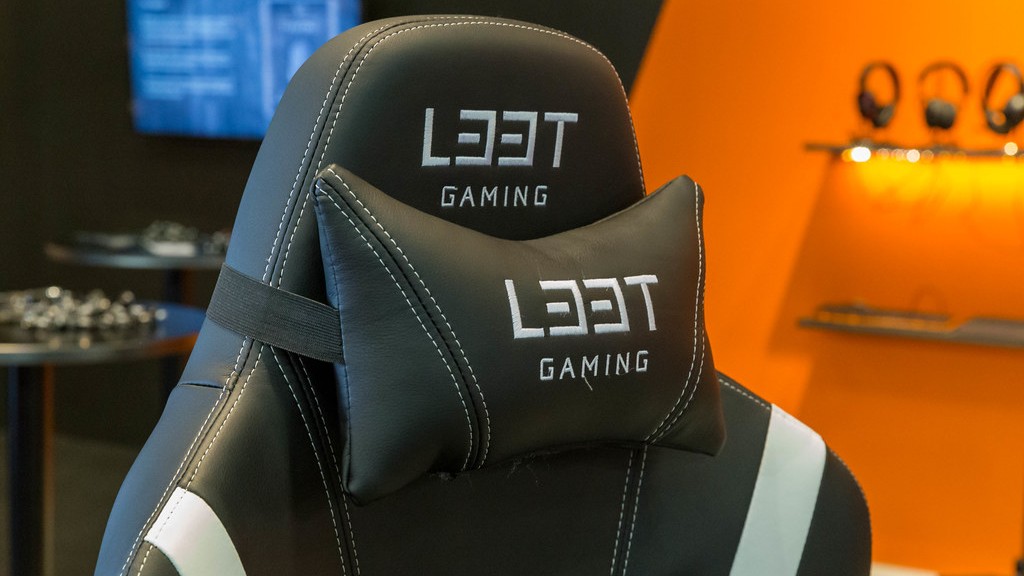When shopping for gaming PC parts, there’s no one-size-fits-all solution: there’s a variety of factors to consider. For starters, you’ll need to decide which type of gaming PC parts you’re looking for, whether they’re made by a specific brand or not, and so on. Here’s a quick guide to help make sure you get the right components for your gaming PC.
The core of any gaming PC is the processor, RAM, and graphics card. You want to opt for a processor that’s powerful enough to handle modern games and has a good life expectancy. RAM should be sufficient in size to handle the games you intend to play, as well as having a high clock speed. When it comes to the graphics card, you’ll need one capable of delivering a smooth gaming experience.
The motherboard is the part that ties everything together and is the one you should spend most of your money on. It’s important to make sure that the motherboard comes with enough slots for the components you’ve chosen, as well as having the capacity to support new hardware when you inevitably decide to upgrade. Memory should also be given some thought: more RAM can improve performance, but this will all depend on the motherboard as well.
The hard drive and SSD are essential for storing your games and backups, so you’ll want to choose a drive that’s big enough for your needs. Don’t skimp on size, either, as that could limit your future game library. If you decide to go with an SSD, you’ll want to go with one with a large capacity and good read and write speeds. The case of your PC is one of the most important decisions you’ll make, given its impact on cooling and overall aesthetic.
When it comes to power supplies, you need to ensure it’s meeting the system specifications and can safely power all the components you’ve chosen. Fans and coolers are also important for cooling purposes, so make sure to select ones that are compatible and won’t make too much noise. Lastly, you’ll need to choose a monitor to display your games and a mouse and keyboard combo for gaming.
Processor
The processor is the brains of your gaming PC: if it can’t compute what your games throw at it quickly and efficiently, then you won’t be able to play them. Intel and AMD are the two main brands offering gaming processors. Of the two, Intel is generally agreed to have a higher wattage, greater single-thread performance, and better integrated graphics. AMD, on the other hand, has generally better multi-thread performance and is generally more affordable, making it a great budget option.
The processor you choose is determined by what you intend to do with your PC, such as how often and how intensively you’ll be gaming. The more powerful the processor, the better the gaming performance will be. But be sure not to sacrifice cooling when upgrading your processor, as this can lead to overheating and subsequent system failure.
When it comes to actually buying, it’s always good to read reviews or ask previous customers for feedback if you are unsure about a purchase. Additionally, you’ll need to make sure that the processor is compatible with your motherboard and other components to ensure everything will work together correctly.
When shopping for processors, you’ll also need to consider the socket type. Intel and AMD have different socket types for their different processor models, so being sure about which model you need is hugely important. Furthermore, you’ll also want to make sure it’s compatible with existing hardware, such as your RAM and other components.
Having the right processor for your gaming PC isn’t something you should take lightly: the right one can make all the difference in the performance of your system.
RAM
The RAM of your gaming PC is the part that stores data that’s frequently used by the processor, so it’s integral to ensuring a smooth gaming experience. If your RAM is inadequate, you may experience lag or even crashes when gaming.
When it comes to selecting RAM, one of the most important considerations is size. Most games need a minimum of 8GB of RAM to work properly, but if you plan to run more complex games at higher settings, you should consider looking for more. A good rule of thumb for RAM size is to consider adding an extra 4GB for every year since the game has been released.
Furthermore, you’ll want to make sure the RAM you select is compatible with your motherboard. Most motherboards today come in either DDR3 or DDR4 memory formats. Costs can vary greatly between the two, so it’s always a good idea to do your research before making a purchase.
The RAM modules should also have the same speed and capacity, otherwise you won’t get the full performance you expect from them. It’s also important to check the overall price for the RAM needed for whatever games you’ll be playing, as this can vary greatly depending on the model and brand.
Finally, you should also consider the amount of cooling that’ll be needed for your RAM. Different modules will require different cooling sizes, so look for a compatible model that won’t compromise the cooling of your system.
Graphics Card
The graphics card is a crucial part of any gaming PC, as it’s the part that visualizes what your PC is producing. It’s important to go for a graphics card that’s powerful enough to handle the games you’ll be running and can deal with texture, resolution, and color depth without any lag.
When looking for the right graphics card, it’s important to keep an eye on the Clock speed, Core Count, and Memory. The clock speed determines the speed at which the card can draw graphics, whilst the core count determines how many cores the card contains. Finally, memory shows you how much video RAM the card has available to draw from.
It’s also important to consider the type of ports being used. HDMI, DisplayPort, and DVI are the most popular display connections for video cards. The version and type of port should also match what the monitor you’re looking to buy supports. Furthermore, the card should have sufficient slots for your monitors, depending on how many you’re planning to attach.
It’s also important to think about the cooling you’ll need for both the card and the system. Most systems will come equipped with a fan, as these are essential for keeping temperatures down, as well as providing additional cooling if needed. Additionally, most graphics cards come with their own cooling systems included, which should be adequate enough to meet your gaming needs.
The most important factor to consider when deciding what kind of graphics card to buy is your budget. Do some research, find cards that perform well for their price range, and then decide which one is best for you.
Hard Drives & SSDs
When it comes to storage, most gaming PCs will require both a hard drive and an SSD. Hard drives are designed to store all your programs and most of your games, whilst SSDs are designed to store your Operating System and any games that need a fast read or write speed.
When choosing a hard drive, you want to make sure you’re getting one that’s big enough for your storage needs. Consider how many games you plan to store and how much space they require. Furthermore, hard drives are usually divided into form factors, so you’ll want to make sure the one you purchase is compatible with the motherboard you’ve chosen.
Solid State Drives (SSDs) are different from hard drives in that they use flash memory instead of platters. This makes them faster and more reliable, although this comes at the cost of price. SSDs are typically used to store the Operating System and any games that require faster loading times. However, due to their high price, you may want to limit the size you go for, so you only get what you need.
Finally, if you plan to store a lot of games or other programs, you may want to get an external hard drive or SSD. External drives are usually much larger than their internal counterparts and come at lower prices thanks to the fact they don’t need to fit inside the PC case.
When it comes to storage, it’s important to ensure that you get enough space first and foremost, as well as one that is compatible with the rest of your components. Thankfully, most hard drives and SSDs offer good performance for their respective prices.
Monitor
The monitor is often overlooked when building a gaming PC. Most people assume that any monitor would do, but this couldn’t be further from the truth. Your monitor should be suited to your preferred gaming setup, as well as the type of games you intend to play.
When considering monitors, there are two main categories to consider: LCDs and LEDs. LCDs are cheaper and produce less power, whilst LEDs are more expensive and consume more energy. The main difference between the two is the color accuracy and refresh rate. LCDs tend to be the better option if you’re looking to play more processor-heavy games.
When selecting a monitor, you should take into account a few different things. Firstly, you’ll want to pay attention to the size and resolution. The higher the resolution, the better the image quality and more detailed the visuals will be. But you should also consider the size, as this affects the overall gaming experience. Too small, and you won’t be able to view all the details, whereas too large and you’ll be struggling to see it all.
It’s also important to consider the monitor’s refresh rate. This refers to how often the screen refreshes the images, which can directly affect gaming performance. A higher refresh rate means smoother graphics and better gaming performance. Most monitors today come with a refresh rate of 60Hz, although gaming-oriented monitors can often reach 100+Hz.
Finally, think about the ports the monitor will require. Most will require an HDMI, DisplayPort, or DVI port, so be sure to double-check that your graphics card will be able to support whatever connections you’re looking for.




